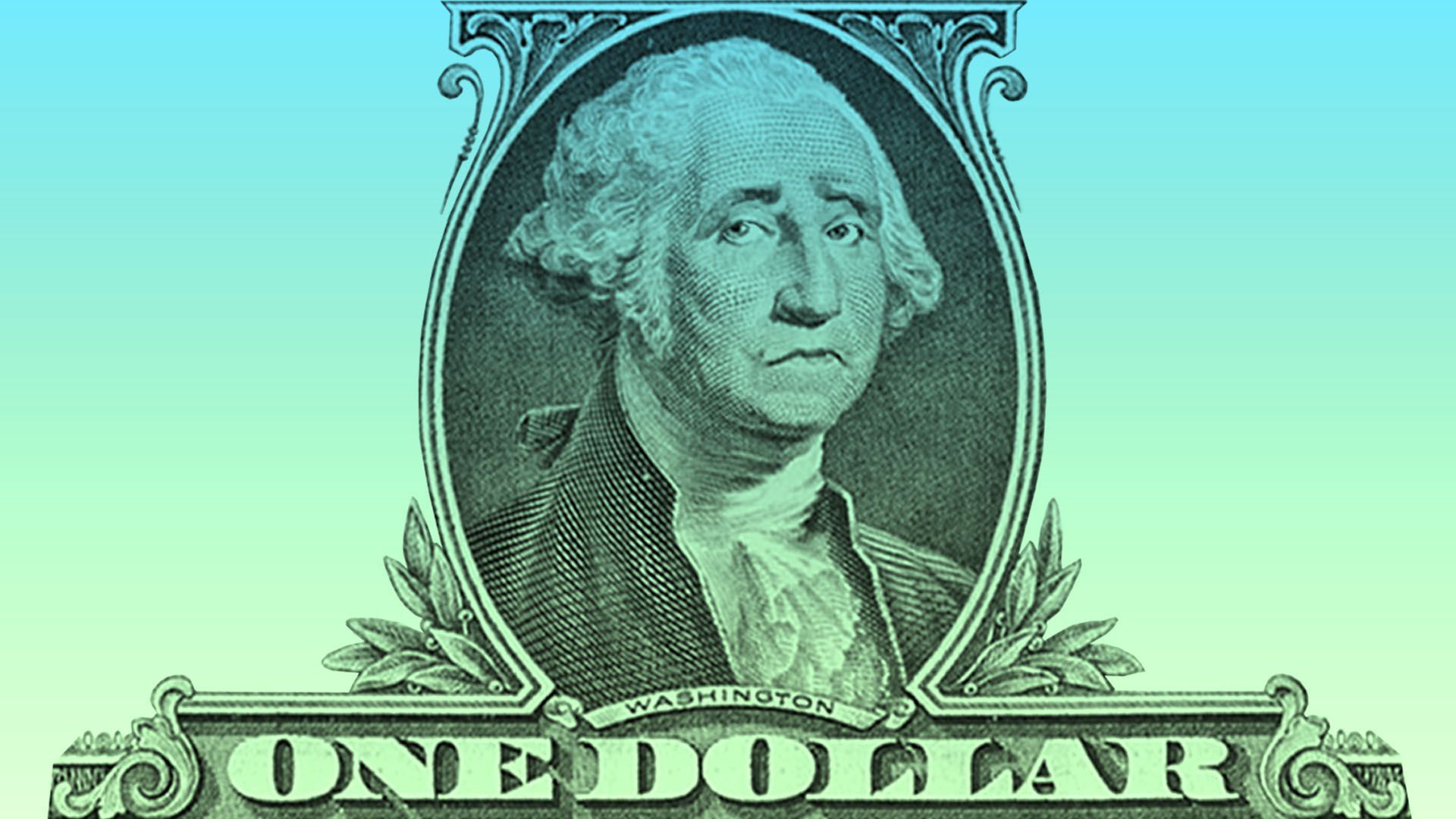Trump may get the weak dollar he wants
Add Axios as your preferred source to
see more of our stories on Google.

Illustration: Sarah Grillo/Axios
The dollar has fallen every day this week, notching a cumulative loss of around 1% since President Trump complained on Twitter about its strength and took aim at two countries with weak currencies.
Why it matters: The decline may continue, reducing the dollar's strength in 2020, experts say.
Driving the news: With U.S. businesses continuing to complain, Trump has made it clear the currency's strength is a major administration concern.
- On Monday, he announced he would reimpose tariffs on steel and aluminum imports from Brazil and Argentina for "presiding over a massive devaluation of their currencies."
- Trump's decision to target Argentina and Brazil, two countries whose economies have been hurt by weakening currencies and whose central banks have intervened to strengthen them, signals to strategists at Bank of America Merrill Lynch that a number of other countries could find themselves in his crosshairs.
Between the lines: "Trump has the ability to intervene in the FX market," Michelle Meyer, Bank of America Merrill Lynch's head of U.S. economics, tells Axios.
- "The dollar size would be pretty small in terms of flows but it would be about sending a signal that he is willing to use that tool."
Yes, but: Currency intervention has been shown to be ineffective unless coordinated between central banks, notes Kathy Lien, managing director of FX Strategy at BK Asset Management.
- "And that’s certainly not what you’re going to get this time around," she tells Axios.
Be smart: What could really move the needle is a ceasefire in the U.S.-China trade war or Trump holding off on instituting more tariffs on Chinese imports.
- New tariffs have boosted the dollar in the past, Lien says, by prompting traders to sell out of so-called high-beta currencies like the Australian and New Zealand dollars and emerging market currencies, and buy more greenbacks in search of safety.
The dollar also could be weakened by outside factors, Lale Akoner, global market strategist at BNY Mellon, tells Axios.
- She expects European economic data to improve, bolstering the euro, and for emerging market currencies to rise against the dollar.
- The British pound has risen to its highest level since May against the dollar this week and could go higher if a Brexit deal is reached, analysts say.
The bottom line: With the U.S. economy poised to slow next year, "the economic differential between the U.S. and the rest of the world will decrease," Akoner says, which should lead to less appetite for the dollar.
Go deeper:
